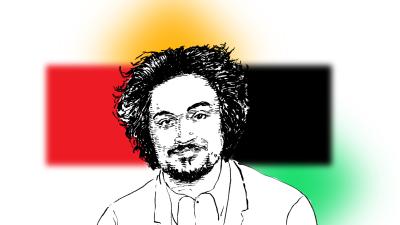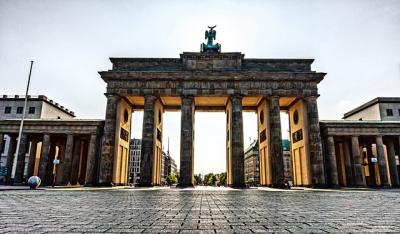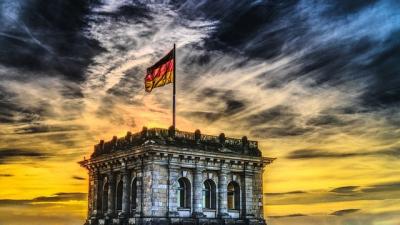State secretaries are the real brains of the ministries. As politicians, it is the ministers who are the eye-catchers for the media, who have to make their party-political mark, justify themselves and stand in front of the cameras – there is not much time left to manage the operational business. Therefore, if a party leads a ministry, that says nothing about how that ministry is actually managed. Some state secretaries remain in office even across legislatures. They know the important levers and the tricks of the trade when it comes to legislation, and they have many years of experience as civil servants.
Despite their power, state secretaries rarely move into the limelight. But since last month, that has changed considerably in Germany. Patrick Graichen is State Secretary in the Federal Ministry of Economics, led by the Vice-Chancellor, Robert Habeck, who is the country's perceived number 2 after Chancellor Olaf Scholz. The Greens have been using this ministry since the change of government to push forward what they call the "Great Transformation". It is thus a key ministry on which the power of the Greens in the Federal Republic is based.
But for weeks, Habeck and Graichen have not been able to get out of the headlines. The highly moral Greens, of all people, are involved in an affair that has the potential to blow up the strongest Green movement on European soil. It is an affair that takes place on two levels. On the one hand, it concerns the personal network of State Secretary Patrick Graichen. For Graichen is related by marriage to another (Parliamentary) State Secretary who also works in the Ministry of Economy: Michal Kellner. Kellner's wife - Graichen's sister - Verena Graichen, like Graichen's brother, works at the “Öko-Institut”, which receives funds from the ministry. In addition, Graichen nominated his Best Man, Michael Schäfer, as head of the German Energy Agency (DENA).
So much for the personal ties. But there is a much more serious one. For Graichen is also part of an eco-network that has been shaping German energy policy for years. Before his appointment as state secretary, Graichen was director of the think tank "Agora", which has spun an extensive network. This think tank is in turn financed to no small extent by US climate foundations worth millions. In the course of the Graichen affair, it became evident that Germany's energy policy might not be decided by the German parliament, but possibly somewhere else entirely. It has also become clear that green lobbies are grabbing subsidies because their confidants are working in the authorities and pushing their own energy policy agenda.
From the end of April, the affair escalated because these details also reached the established press. The magazine “Tichys Einblick” had already written about these connections at the turn of the year 2021/2022 and had repeatedly shed light on Graichen and his entanglements. With a bang, this information now came to the attention of a broad public. The end result was Graichen's resignation. But “after his dismissal” means “before his dismissal”: after all, the eco-network of the "Agora" established by Graichen and his predecessors lives on.
A total of 8 state secretaries sit or sat on the "Agora Council", an alleged debate forum of the think tank. “Alleged”, because this debate forum takes place according to the Chatham Rules, meaning: what happens in the "Agora" remains confidential. In addition to representatives of the executive branch, representatives of party factions at federal and state level also sit on the panel defining Germany's future energy transition, together with representatives from business, industry and civil society. A non-party network in which political decisions are devised and apparently also decided – outside of parliamentary control.
For even before Patrick Graichen vacated his post as "Agora" director and was appointed to the Ministry of Economics, the "Agora" had already preconceived and launched ideas on the energy transition. Its studies were mainly used as arguments by representatives of the Green Party. Whether the ban on the combustion engine, the dismantling of the gas grid or now the mass replacement of oil and gas heating systems in favour of heat pumps - they all came from the "Agora". For even before Graichen, the "Agora" network had taken root in the ministries.
The history of the green lobby therefore also includes the fact that since the Red-Green government under Chancellor Gerhard Schröder, at least one representative has always sat in the ministries. The first was Rainer Baake. He is considered the real "godfather" of the German energy transition. Baake came to the green-led Federal Environment Ministry under Jürgen Trittin as State Secretary in 1998. Baake was also the founder of the "Agora" in 2012 and brought Graichen - then still a civil servant in the Environment Ministry - on board. Baake remained director of the think tank until 2014, because he was then appointed State Secretary again - in the Ministry of Economics. Graichen headed the think tank from 2014 to 2021.
The German media and German politics are doing their utmost to minimise the true extent of this scandal. The fact that "Agora" members like Jochen Flasbarth sat for years in the Federal Ministry for the Environment and cobbled millions of euros in funding to friendly NGOs is accepted with a shrug of the shoulders. Flasbarth, too: a state secretary. Public broadcasting in particular does almost no educational work. Instead, they try to turn the "Agora" affair into a Graichen affair or even a "best man affair". In fact, Graichen did not fall at all over the DENA boss, whom he helped to appoint, but over the fact that he transferred 600,000 euros to a green NGO, on whose board sat his sister.
But it is not only in the media that Germany shows considerable deficits. With Udo Philipp, a second state secretary from the Ministry of Economics came into the limelight during the same period. In his position, Philipp is responsible for German start-ups - although he himself holds shares in start-ups. There are several suspicious cases in which Philipp has linked his ministerial responsibilities and his private interests. Actually, a full-blown scandal: because even the appearance of such advantage-taking is problematic.
However, after his bad experiences, Habeck unceremoniously undermined the parliamentary right to ask questions: the opposition MPs were only allowed to ask their questions collectively during the hearing and were forbidden to make any queries and also to speak directly to the state secretary. These are conditions familiar from banana republics. In Germany, the bananas are merely green.
Read also
The Individual on the Defensive
Do Nazis have a right to life? Outside Germany, such a debate might seem perplexing. But during the last days of May, discussions in Germany revolved around nothing less, after a left-wing extremist was released under quite lenient conditions.
Marco Gallina
A delicate smell of Stalinism in German air
German Federal Minister of the Interior is considered Minister of the Constitution. He is therefore also in charge of the Federal Office for the Protection of the Constitution (Verfassungsschutz), the federal office responsible for collecting and evaluating information on actions efforts against the free basic order.
Marco Gallina
The Catholic Church in Germany is in a worse situation than in 1517
The Archbishop of Cologne is one of the most important representatives of the Catholic clergy not only in Germany, but worldwide.














Comments (0)